What next for The Gambia?
Mr Jammeh's party says it will file a petition to the Supreme Court. However, the Supreme Court cannot make a decision as they do not have enough judges.
Two were sacked by the president in June and legal experts say he can't appoint new judges for a case about himself.
With no Supreme Court to rule on the dispute, the next question is how the army could get involved. And that is not clear.
The head of the Gambian army, General Ousman Badjie, pledged his loyalty to President-elect Adama Barrow after the incumbent conceded.
But since Mr Jammeh went back on his words, the army appears to have gravitated back towards him.
Amid the possibility for instability, Gambia's neighbours are getting involved.
Senegal, which surrounds The Gambia, called a UN Security Council meeting which condemned Mr Jammeh's U-turn.
Senegalese fighter jets have been seen flying in the skies. It is not clear whether this is a coincidence or a warning to Mr Jammeh.
![]()
According to the electoral commission's latest count, as a result of the vote on 1 December:
- Adama Barrow won 222,708 votes (43.3%)
- President Jammeh took 208,487 (39.6%)
- A third-party candidate, Mama Kandeh, won 89,768 (17.1%)
They were revised by the country's electoral commission on 5 December, when it emerged that the ballots for one area had been added incorrectly, swelling Mr Barrow's vote.
The error, which also added votes to the other candidates, "has not changed the status quo" of the result, the commission said.
However, it narrowed Mr Barrow's margin of victory from 9% to 4%.
Mr Jammeh, who has ruled the Gambia for 22 years, originally conceded victory to Mr Barrow, who used to be a security guard in chain store Argos in London.
He was even shown telephoning Mr Barrow saying "you are the elected president of Gambia and I wish you all the best".
Last week a leading member of Mr Barrow's coalition told the UK's The Guardian newspaper that President Jammeh would be prosecuted for alleged crimes committed during his rule.
In his U-turn rejecting the results, Mr Jammeh cited "serious and unacceptable abnormalities" in the electoral process, pointing to the errors mentioned by the electoral commission.
Despite the errors, election commission head Alieu Momarr Njai told Reuters news agency that he stood by the "if it goes to court, we can prove every vote cast".
"The election results were correct, nothing will change that," he said.
President-elect Barrow said on Sunday that he feared for his safety.
In his 22 years in power, Mr Jammeh acquired a reputation as a ruthless leader.
Human rights group have accused his government of stifling the press and harassing opposition parties.

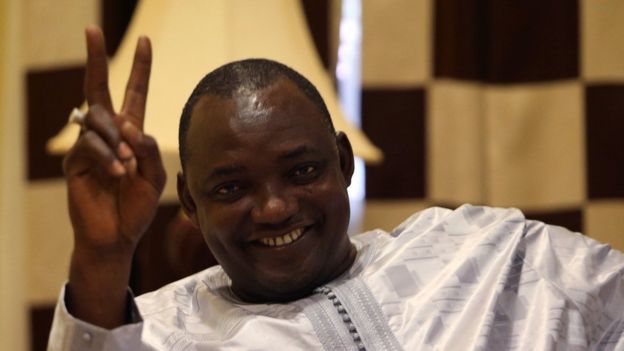
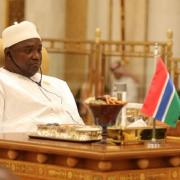
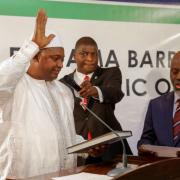
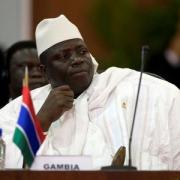
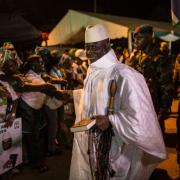
Comments